Faculty Books: Five New Volumes on Lawyering, Latinos, Los Angeles and More
UCLA Law Magazine | Fall 2020 | Volume 43
Including incisive examinations of the Latino experience in the United States and the use of metrics in academic research, UCLA Law professors this year drove the conversation with books that highlight the roles that lawyers play in contemporary society – from the streets of Los Angeles to the International Criminal Court.
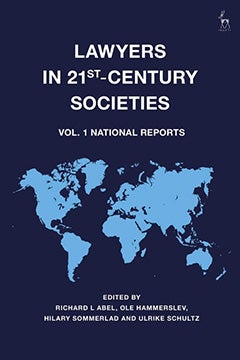 Richard L. Abel (with Ole Hammerslev, Hilary Sommerlad and Ulrike Schultz)
Richard L. Abel (with Ole Hammerslev, Hilary Sommerlad and Ulrike Schultz)
Lawyers in 21st-Century Societies: Vol. 1: National Reports
Hart Publishing (2020)
In this first of two volumes, scholars from a wide range of disciplines, countries and cultures document and analyze dramatic changes to the world’s legal professions in the 30 years since publication of the landmark three-volume Lawyers in Society, which launched comparative sociological studies of lawyers. National reports from 46 countries address the impact of globalization and neoliberalism on national legal professions; changes in lawyer demography; legal education; the regulation of lawyers; structures of production; the distribution of lawyers across roles; and access to justice.
Abel is the Michael J. Connell Distinguished Professor of Law Emeritus and a distinguished research professor who teaches torts, legal profession and law and social change.
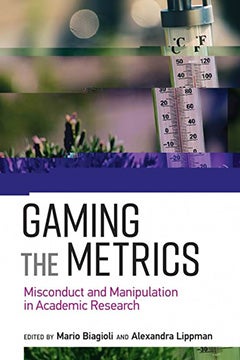 Mario Biagioli (with Alexandra Lippman)
Mario Biagioli (with Alexandra Lippman)
Gaming the Metrics: Misconduct and Manipulation in Academic Research
MIT Press (2020)
The traditional academic imperative to “publish or perish” is increasingly coupled with the newer necessity of “impact or perish” — the requirement that a publication have “impact,” as measured by a variety of metrics, including citations, views and downloads. This book examines how this increasing reliance on metrics has produced radically new forms of academic fraud and misconduct. Contributors show that the metrics-based “audit culture” has changed the ecology of research, fostering the gaming and manipulation of quantitative indicators, leading to the invention of such forms of misconduct as citation rings and variously rigged peer reviews.
Biagioli is a distinguished professor of law and communication who works at the intersection of intellectual property and science and technology.
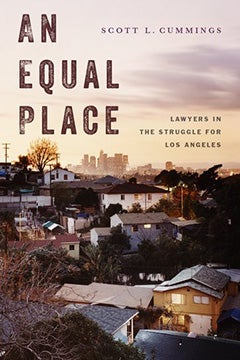 Scott L. Cummings
Scott L. Cummings
An Equal Place: Lawyers in the Struggle for Los Angeles
Oxford University Press (2020)
This monumental study of the role of lawyers in the movement to challenge economic inequality in one of America’s most unequal cities focuses on the stories of contemporary lawyers who use law to reshape the meaning of low-wage work in the local economy. Covering a transformative period of L.A. history, from the 1992 riots to the 2008 recession, the book presents an unflinching account of five pivotal campaigns in which lawyers ally with local movements to challenge the abuses of garment sweatshops, the criminalization of day labor, the gentrification of downtown retail, the incursion of Wal-Mart groceries, and the misclassification of port truck drivers.
Cummings is the Robert Henigson Professor of Legal Ethics, a professor of law and the faculty director of Legal Ethics and the Profession (LEAP).
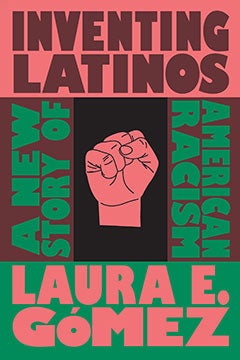 Laura E. Gómez
Laura E. Gómez
The New Press (2020)
Latinos have long influenced everything from electoral politics to popular culture, yet many people instinctively regard them as recent immigrants rather than a longstanding racial group. This book illuminates the fascinating race-making, unmaking and re-making of Latino identity that has spanned centuries, leaving a permanent imprint on how race operates in the United States today. As the country approaches an unprecedented demographic shift where Latinos will comprise a third of the American population in a matter of decades, the book also reveals the nefarious roles the United States has played in Latin America — from military interventions and economic exploitation to political interference — that have destabilized national economies to send migrants northward over the course of more than a century.
Gómez holds the Rachel F. Moran Endowed Chair in Law and is the faculty director of the Critical Race Studies program, which she co-founded 20 years ago.
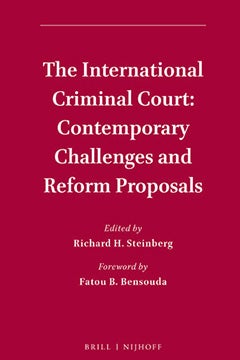 Richard H. Steinberg
Richard H. Steinberg
The International Criminal Court: Contemporary Challenges and Reform Proposals
Brill (2020)
In this collection of essays, prominent international criminal law commentators respond to questions of interest to the Office of the Prosecutor of the International Criminal Court on topics including obtaining evidence of sexual and gender-based violence; challenges communicating with victims, witnesses and others; ICC state party withdrawals; measuring the ICC’s performance; the scope and anticipated difficulties of the crime of aggression; and reform proposals for the Rome Statute at 20.
Steinberg is a professor of law and professor of political science who holds the Jonathan D. Varat Endowed Chair in Law who teaches international economic law, international criminal law, and human rights.